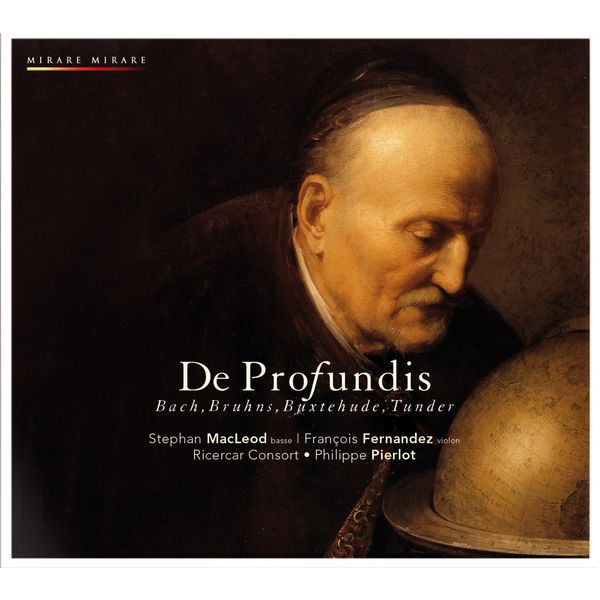
Streaming ilimitado
Escuche este álbum ahora en alta calidad en nuestras apps
Comenzar mi periodo de prueba gratis y escuchar este álbumDisfrute de este álbum en las apps Qobuz con sususcripción
SuscribirDisfrute de este álbum en las apps Qobuz con sususcripción
The solo cantata repertory of northern Germany in the late seventeenth century took a long time to reach the realm of recordings, and now that it has it is regularly yielding new treasures. Various works by Dietrich Buxtehude have been recorded; here he is represented by a single work and is joined by his student Nikolaus Bruhns and his father-in-law, Franz Tunder. The pieces evolved in the direction of simplicity and intensity, under the influence of the religious ideas collectively known as Pietism. Italian aria styles with their regular structure and smooth melodies made their way across Germany during this period, only to be met by German poetry and its assortment of rules and rhetorical figures. The collision resulted in a level of creative tension that generated deeply felt works in a region devastated by war. The flavor of the music is given right out of the blocks in the title track, Bruhns' De Profundis (track 1), with its spectacular rising melisma at the words "De profundis clamavit" (Out of the depths I have cried). The booklet identifies some of the rhetorical figures found in the music throughout; their effect is not to restrict the music but to intensify it. Swiss-born bass Stephan MacLeod delivers power on a small musical scale, and the Ricercar Consort, featuring director François Fernandez on the violino piccolo, brings warmth and intimacy on historical instruments. This music was ignored perhaps because it does not lead directly to Bach, but it has a great deal to tell the listener about German Protestantism and its musical impulses. A superb disc of solo sacred music. Notes are in French, English, and German.
© TiVo
Está escuchando muestras.
Escuche más de 100 millones de pistas con un plan de streaming ilimitado.
Escuche esta playlist y más de 100 millones de pistas con nuestros planes de streaming ilimitado.
Desde $ 4.259,00/mes

Presentación del Álbum
The solo cantata repertory of northern Germany in the late seventeenth century took a long time to reach the realm of recordings, and now that it has it is regularly yielding new treasures. Various works by Dietrich Buxtehude have been recorded; here he is represented by a single work and is joined by his student Nikolaus Bruhns and his father-in-law, Franz Tunder. The pieces evolved in the direction of simplicity and intensity, under the influence of the religious ideas collectively known as Pietism. Italian aria styles with their regular structure and smooth melodies made their way across Germany during this period, only to be met by German poetry and its assortment of rules and rhetorical figures. The collision resulted in a level of creative tension that generated deeply felt works in a region devastated by war. The flavor of the music is given right out of the blocks in the title track, Bruhns' De Profundis (track 1), with its spectacular rising melisma at the words "De profundis clamavit" (Out of the depths I have cried). The booklet identifies some of the rhetorical figures found in the music throughout; their effect is not to restrict the music but to intensify it. Swiss-born bass Stephan MacLeod delivers power on a small musical scale, and the Ricercar Consort, featuring director François Fernandez on the violino piccolo, brings warmth and intimacy on historical instruments. This music was ignored perhaps because it does not lead directly to Bach, but it has a great deal to tell the listener about German Protestantism and its musical impulses. A superb disc of solo sacred music. Notes are in French, English, and German.
© TiVo
Acerca del álbum
- 1 disco(s) - 8 pista(s)
- Duración total: 01:06:01
- Artista principal: Philippe Pierlot
- Compositor: Various Composers
- Sello: Mirare
- Género Clásica

